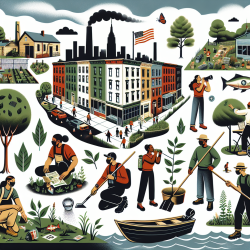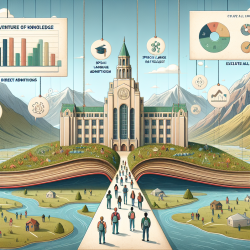Unlocking Community Power: Lessons from Greenpoint/Williamsburg
As Special Education Directors, we constantly seek ways to improve our practices and ensure the well-being of the students and communities we serve. One approach that has gained traction is Community-Based Participatory Research (CBPR), which empowers communities to take an active role in research processes that affect them directly. A recent study titled "Combining community-based research and local knowledge to confront asthma and subsistence-fishing hazards in Greenpoint/Williamsburg, Brooklyn, New York" offers valuable insights into how CBPR can be a transformative tool for environmental justice.
Understanding the Research
The study, conducted by Jason Corburn, highlights the efforts of two community-based organizations, El Puente and The Watchperson Project, in the Greenpoint/Williamsburg neighborhood of Brooklyn. These organizations engaged in CBPR to tackle environmental health issues such as asthma and risks associated with subsistence fishing. The research underscores the importance of involving community members as equal partners alongside scientists to define problems, collect information, and analyze data, all aimed at fostering locally relevant action for social change.
Case Studies: El Puente and The Watchperson Project
- El Puente: This organization mobilized residents to conduct asthma health surveys, leveraging local knowledge from the Latino population to identify potential asthma triggers. By understanding these triggers, El Puente was able to devise culturally relevant health interventions that resonated with the community.
- The Watchperson Project: This initiative focused on surveying subsistence anglers, gathering data that contributed to the U.S. Environmental Protection Agency's Cumulative Exposure Project. The community-gathered information provided crucial insights into local environmental health issues.
Implementing CBPR in Practice
For practitioners looking to implement CBPR, the study offers several key takeaways:
- Engage the Community: Involve community members from the outset to ensure that the research addresses their most pressing concerns.
- Leverage Local Knowledge: Tap into the community's unique insights and experiences to enrich the research process and outcomes.
- Foster Partnerships: Build strong partnerships between community organizations and researchers to create a collaborative and inclusive research environment.
Benefits and Challenges
While CBPR offers numerous benefits, such as empowering communities and producing actionable insights, it also presents challenges. These include the need for sustained commitment from all parties and the potential for power imbalances between researchers and community members. However, when implemented effectively, CBPR can lead to meaningful social change and improved environmental health outcomes.
To read the original research paper, please follow this link: Combining community-based research and local knowledge to confront asthma and subsistence-fishing hazards in Greenpoint/Williamsburg, Brooklyn, New York.










